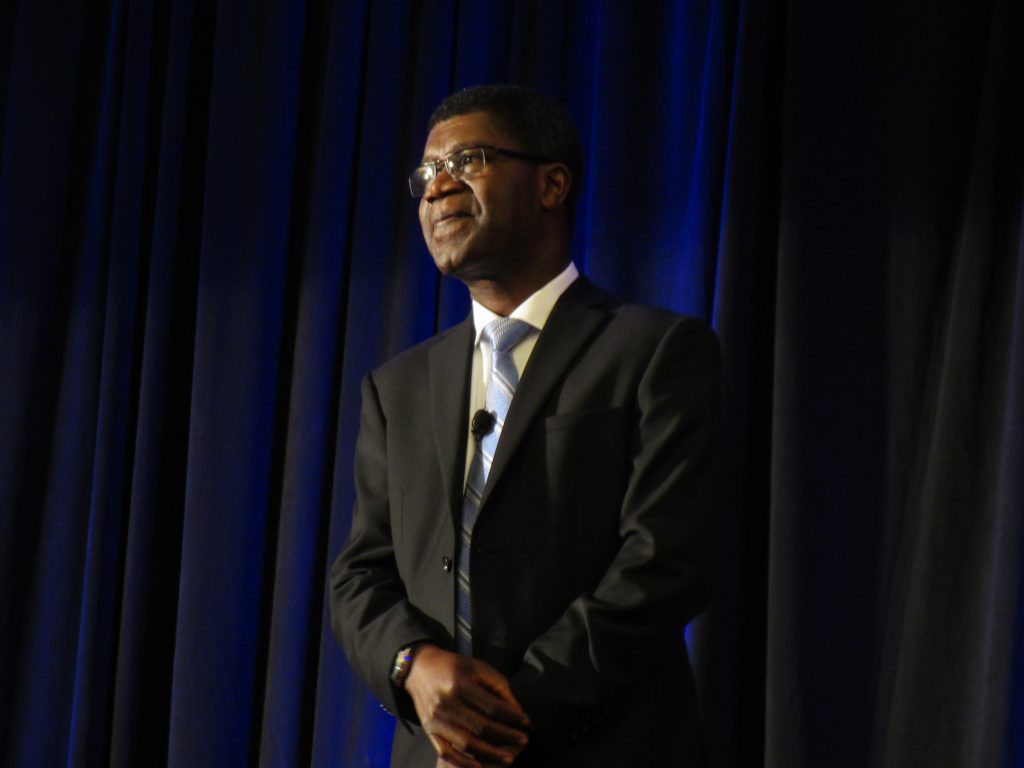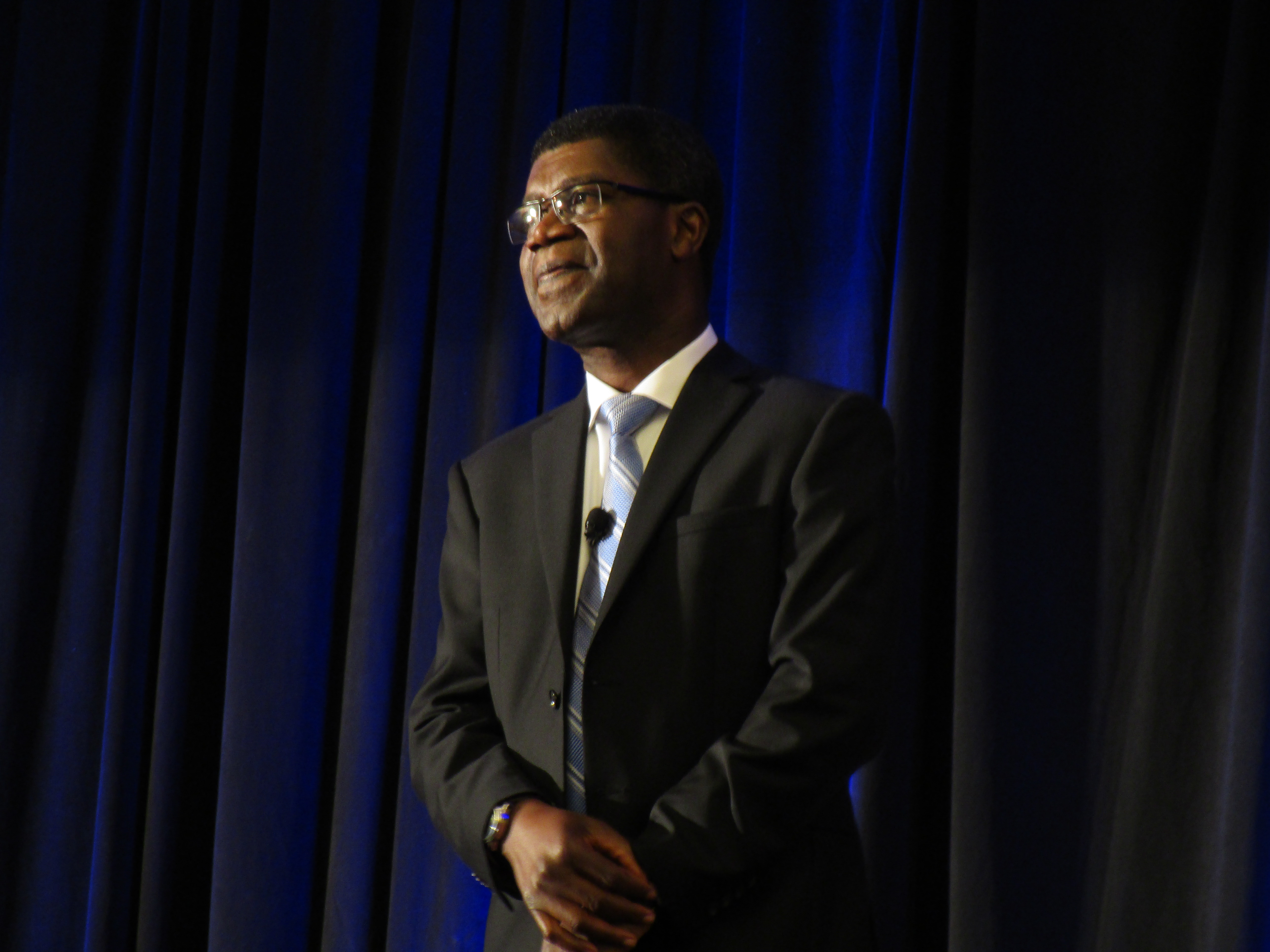Do You Know These African Scientists?

Thierry Zomahoun argues that Africa is the birthplace of mathematical sciences, and that this is the continent’s single biggest contribution to humanity. Photo: Sibusiso Biyela
SAN FRANCISCO—Wilfred Ndifon of Cameroon solved a 70-year-old immunology conundrum. Bernie Fanaroff of South Africa established the Fanaroff-Riley classification of radio galaxies and quasars. And Noble Banadda of Uganda uses mathematical models to predict what will happen during the many disease outbreaks in Africa.
Chances are you’ve never heard of these scientists, even though they are among the most famous minds on their continent. Thierry Zomahoun, who leads the African Institute for Mathematical Sciences (AIMS), says that the reason you don’t know about them is a scar left behind by the whip of colonialism over Africa.
“I would like you, as science journalists, to help the world discover the unique contribution that the African continent has made."
In a plenary talk given on 27 October to a room full of seasoned science writers at the World Conference of Science Journalists 2017, Zomahoun boldly challenged what he says are long-held beliefs of the mainstream media that Africa has not been instrumental in building the body of knowledge in mathematics and science.
“Looking at conventional history, one is left with the sense that Africa has made no meaningful contributions to science,” he said. “I would like you, as science journalists, to help the world discover the unique contribution that the African continent has made and continues to make to science and human progress.”
The voices of Africa
The history of Africa has long been told through the voices of those who colonised it. A new crop of academics is taking back this narrative history by placing the continent at the centre of human progress. The late Ivan Van Sertima, associate professor at Rutgers University, once poignantly wrote that “the nerve of the world has been deadened for centuries to the vibrations of African genius.”
For instance, consider the Lebombo bone, a well known 43,000-year-old tool used in specialised rituals discovered in Swaziland in 1973. Scientists say that in addition to its religious importance, it is also evidence of the use of complex mathematics in Africa. This piece of history is the basis for Zomahoun’s claim that Africa is the cradle of mathematics, countering the idea that humans did not develop the capacity for science until they migrated out of Africa.
Zomahoun then listed off a few African scientists, many of whom changed their fields and have been lauded in their countries. When he asked how many in the audience knew them, he was met with dead silence—perhaps reflecting the media coverage of the researchers he listed.
Why should you care about African science
Africa is home to two-thirds of the Square Kilometre Array radio telescope, which will trace a new network of smaller radio telescopes across the continent to unravel secrets of the early universe. Africa is also host to programmes such as the Maternal and Infant Health Care Strategies Unit in South Africa that looks to reduce maternal deaths, a scourge that affects even developed countries such as the United States.
The reason we don’t hear more about these projects, said Zomahoun, is a Western bias left by colonialism. His African Institute of Mathematical Sciences is “enabling Africa’s talented students to become innovators driving the continent’s scientific, educational and economic self-sufficiency.”
Organizers of the Next Einstein Forum, one of the institute’s initiatives, believe Africa’s contributions to the global scientific community are critical for progress. Zomahoun touts this programme as the best way to combat negative ideas about African science by bringing together the continent’s brightest young scientists to change Africa’s future in science for the better.
If such programmes succeed, the continent’s contributions will become the world’s achievements toward greater human progress. Perhaps in the not-too-distant future, Zomahoun predicted, you will be able to name several African scientists as their work graces more science publications.
—
Sibusiso Biyela is a digital science communicator at ScienceLink, South Africa’s first digital science communication start-up. He volunteers for SciBraai, a proudly South African NPO dedicated to science journalism, communication and outreach. Sibusiso is pursuing an undergraduate BSc in chemistry and physics at the University of Zululand. Follow him on Twitter @AstroSibs

